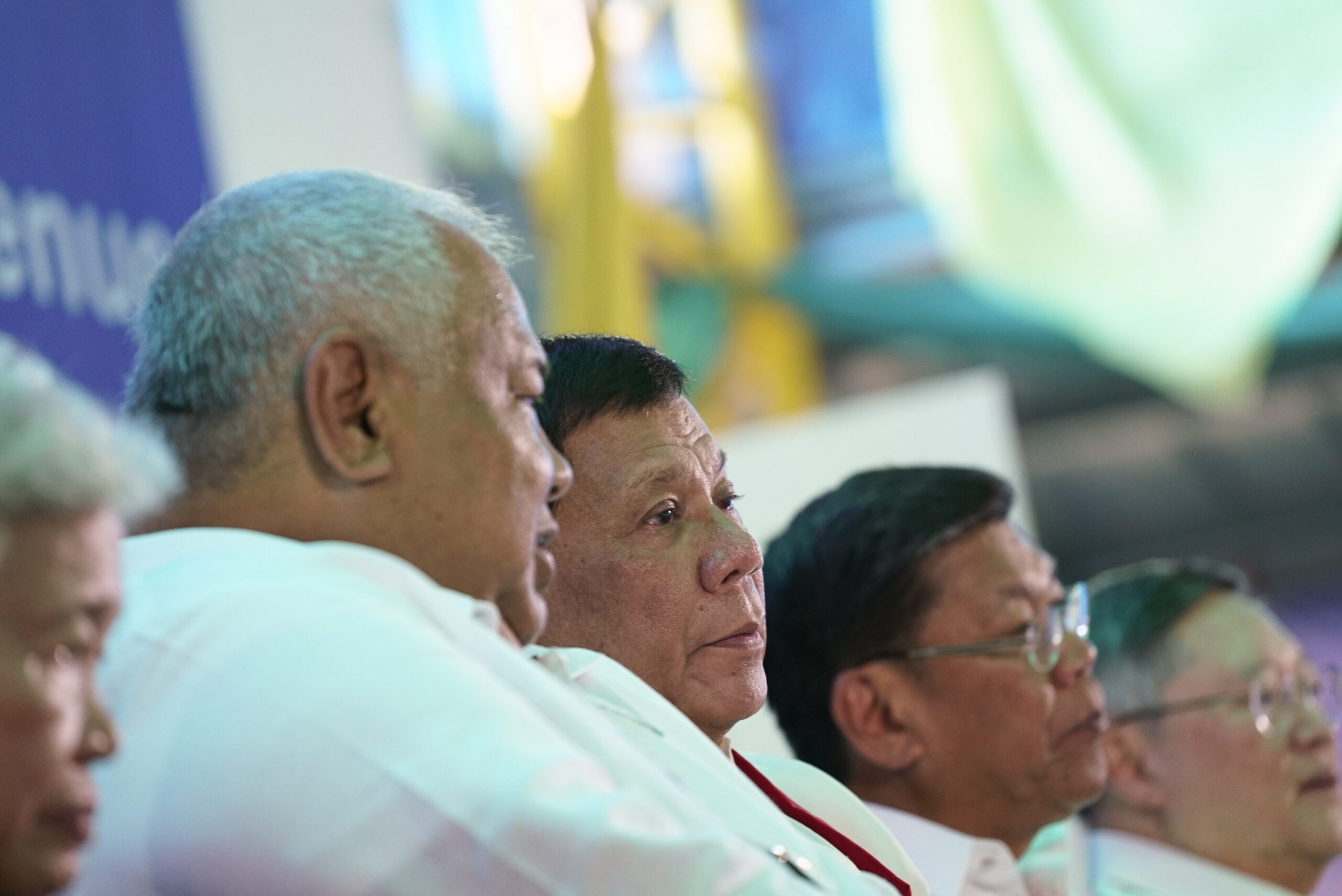SUMMARY
This is AI generated summarization, which may have errors. For context, always refer to the full article.

MANILA, Philippines – Malacañang said the government’s big expenses in other programs will be a major consideration for President Rodrigo Duterte when he decides whether or not to veto the Universal Access to Quality Tertiary Education Act.
The bill, now up for Duterte’s signature, aims to provide full tuition subsidy for students in 112 state universities and colleges (SUCs), local universities and colleges, and government-run technical-vocational schools.
“We’ve got lots of problems, especially with the rehabilitation of Marawi and our OFWs (overseas Filipino workers) who need to be brought home. There are a lot of expenses so our President is considering these things,” said Presidential Communications Assistant Secretary Marie Banaag in a Palace news briefing on Thursday, August 3.
The other day, Duterte said in a media interview that the bill is on his table and he will decide on it by Saturday, August 5, the day it lapses into law.
Banaag said Duterte will consult with his economic managers before making his decision.
While she said free tuition for college education would likely be music to the ears of citizens, there are practical concerns to consider, like whether or not the government can afford such a program at this time.
“If and when there is advice that our government will have a hard time coping with it then he would consider that,” said Banaag.
Last Tuesday, August 1, Budget Secretary Benjamin Diokno admitted that the government cannot shoulder the estimated budget requirements of the bill. (READ: Education, infra to get bulk of proposed 2018 nat’l budget)
Diokno, Finance Secretary Carlos Dominguez III, and Socioeconomic Planning Secretary Ernesto Pernia oppose the bill, saying it will benefit largely the non-poor students.
“In 2014, only 12% of the students attending SUCs belong to the bottom 20% of the family income classification based on the Annual Poverty Indicators Survey,” said the National Economic and Development Authority (NEDA) in a previous statement.
According to these economic managers, an across-the-board tuition-free policy has possible adverse implications, such as the exodus of students from private higher education institutions (HEIs) to SUCs.
Such an exodus, they said, would eventually affect the overall quality of Filipino graduates given that “a number of private HEIs perform better than SUCs.” (READ: Free tuition in state colleges: When CHED officials clash)
They also maintained that the budgetary support for free tuition will be difficult to sustain. (READ: Higher budget, free tuition in state colleges: Easier said than done)
Lawmakers, however, said Duterte’s economic managers over-estimated how much the tuition subsidy would cost the government.
Far from the P100 billion projected by Diokno, the bill would cost only P14 billion or P20 billion, claimed Senator Francis Escudero.
Instead of the free tuition bill, Diokno, Dominguez, and Pernia are pushing for fully funding the Unified Student Financial Assistance System for Tertiary Education (UniFAST).
Enacted in 2015, UniFAST seeks to “harmonize, reform, strengthen, expand, rationalize, and re-focus” all ongoing student financial assistance programs of the government. – Rappler.com
Add a comment
How does this make you feel?
There are no comments yet. Add your comment to start the conversation.